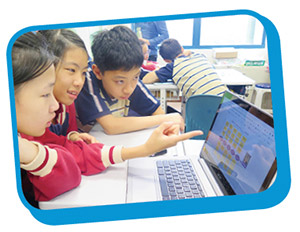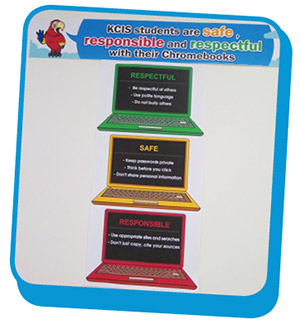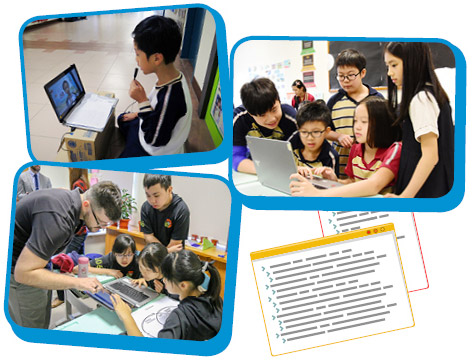
Happy Holidays
國際處主任 賴國宜
With the increasing use of technology, the issue of digital ethics becomes more important. Mr. Claassen's article states how we teach responsible and appropriate technology usage. Besides air, there is nothing more essential to life than water. According to UNESCO, 3.6 billion people worldwide (nearly half the global population) are already living in potential water-scarce areas at least one month per year and this could increase to 4.8–5.7 billion in 2050. In the grade 6 Water Scarcity Project, students discussed the causes of fresh water shortages and looked for solutions to the problem. By exploring this world issue, we hope to broaden the students' view and prepare them to be responsible global citizens.
Christmas is around the corner and this year we extended our celebration to the entire month of December with Advent Calendar Activities, Christmas Stockings for Teachers and a Donation Drive. While celebrating the holiday, children also learn to be more caring and grateful. I would like to wish you and your family a Merry Christmas and a Happy New Year.
隨著資訊科技運用程度的增加,如何引導學生合宜合法的使用數位訊息,顯得格外重要,教學組長Roland Claassen闡述「數位公民」的重要意涵,帶您進一步了解我們如何培養學生正確使用資訊科技的態度和觀念。
由於氣候變遷與人口增加等因素,全球水資源短缺的問題日益嚴重,聯合國教科文組織已將水資源問題列為未來的全球危機之一。六年級的孩子化身缺水問題最嚴重國家的水利署官員,分析問題發生的原因和後果,並提出最迫切的解決方案。此專題讓孩子能更深刻的認識水資源議題,並且培養關懷世界的態度。
為了讓孩子能感受到更濃厚的節慶氛圍,今年我們以倒數月曆(Advent Calendar)將聖誕節活動擴及到整個12月,六樓走廊整排美麗的聖誕襪,裡面裝滿了孩子們利用下課時間,主動寫給老師們的祝福和感謝小卡片,希望在溫馨的歲末時刻,孩子們不只享受歡樂的節慶,也學會感恩和關懷。
最後祝福所有康橋家庭一起度過溫馨的耶誕佳節,並迎接嶄新的一年。

~ Roland Claassen
Teaching Coordinator, International Department

Digital citizenship is an area that educators and administrators have to continue to promote and develop within classrooms. As so many tasks done today involve the use of technology, it is our responsibility to cover the fundamentals of digital citizenship so that students are safe and secure, as well as smart and effective participants in the digital world. This year we have made it our mission to make digital citizenship skills a part of our curriculum, especially because we do so much project work that requires students to do research, to collaborate using online tools and perhaps even be involved in social media. Technology is a powerful learning tool. However, to make the best of this amazing tool we would like our students to use it safely, responsibly and respectfully. KCIS has developed a Digital Citizenship Policy and Agreement to outline those responsibilities and expectations that we have when students use technology in our school. We ask students and their families to review and sign this agreement every year they attend KCIS.
What does it mean to be safe?
Being on the internet is tons of fun but it does have its dangers and risks and we would like our students to be safe online. The first thing we emphasize when helping students set up their Google accounts is the importance of keeping personal information safe and not giving out their name, telephone number or passwords to anyone who they just met online.

What does it mean to be responsible?
The internet is open to all kinds of information and when students research for a project it’s important for them to know which sites they can trust and which sites they cannot. It’s also important for them to properly cite sources or use their own words to explain information they find on the internet. In grade 5, students have limited access to explore the web in order to ensure a safe environment for learning basics and fundamentals of internet research. As students move to grade 6 we allow more freedom as we open up the options for students to explore. However, with more freedom comes more responsibility!
What does it mean to be respectful?
Just like in real life, using the internet involves interacting and collaborating with other people, so educating our students to interact appropriately in collaborative online discussions is imperative. We have many projects that require students to leave comments for their peers so we encourage them to consider how they and others might feel after they've posted something. It's not always easy to take back what you've said online, and your online behavior can create a lasting imprint.


![]() 全文下載)
全文下載)